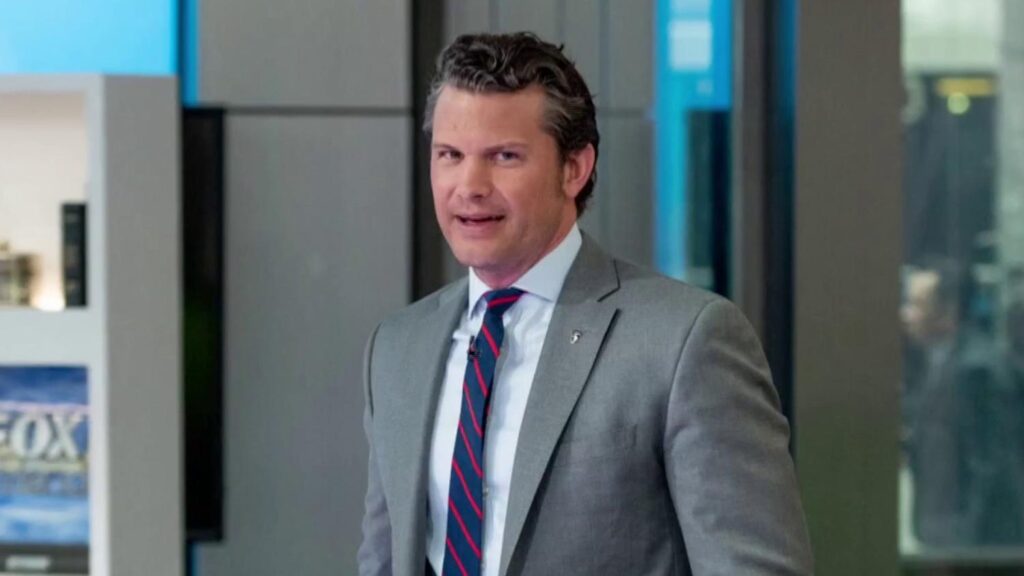The United States military has long valued and celebrated religious diversity among its ranks, recognizing the importance of respecting all faiths within its community. However, as the possibility looms of Pete Hegseth assuming a leadership role within the military, questions arise about how this shift in leadership could potentially impact the current culture of religious inclusivity. Would the core values of acceptance and tolerance remain intact, or would there be a noticeable shift in the military’s stance on religious diversity under Hegseth’s command? Let’s explore the potential implications of this hypothetical scenario.
The Current State of Religious Diversity in the US Military
In the US Military, there is a rich tapestry of religious diversity that reflects the broader American society. This diversity is not only respected but embraced, with service members given the freedom to practice their faith in accordance with their beliefs. From Christianity and Judaism to Islam and Buddhism, the military accommodates a wide range of religious traditions, allowing individuals to find comfort and solace in their faith while serving their country.
However, with the possibility of Pete Hegseth taking charge, there are concerns about how religious diversity in the military may be impacted. Hegseth’s controversial statements and conservative views on religion have raised questions about whether he would uphold the current ethos of inclusion and acceptance. Service members from minority religious backgrounds worry that under his leadership, their right to religious freedom may be jeopardized, potentially leading to a less tolerant environment within the ranks.
Potential Implications of Pete Hegseths Leadership on Religious Diversity
As the potential leader of the US Military, Pete Hegseth’s stance on religious diversity raises important questions. One key consideration is whether his leadership would impact the current emphasis on inclusivity and respect for all religious beliefs within the military.
There are several potential implications of Pete Hegseth’s leadership on religious diversity in the US Military:
- Shift towards a specific religious ideology: Hegseth’s personal beliefs could influence policies that favor a particular religion over others, leading to a less inclusive environment for service members of diverse faith backgrounds.
- Challenges to religious freedom: There may be increased scrutiny or restrictions on the practice of certain religions within the military, potentially violating the rights of service members to freely express their beliefs.
Examining Pete Hegseths Past Remarks on Religion in the Military
Recent scrutiny has been cast on Pete Hegseth’s past remarks regarding religion in the military, raising concerns about the potential impact of his views if he were to take charge. Hegseth has been vocal about his Christian faith and the importance of religion in shaping the values of the armed forces. While some may argue that religious beliefs play a positive role in fostering discipline and moral values among military personnel, others worry about the implications of promoting a single faith within a diverse and inclusive institution like the US military.
As the US military takes pride in its commitment to religious diversity and accommodation, there are valid questions about how Hegseth’s leadership could potentially change the current landscape. Would there be a shift towards privileging Christianity over other religious beliefs? Could this impact the morale and cohesion of service members who come from varied cultural and religious backgrounds? These are important considerations that warrant closer examination as the debate over religion in the military continues.
Recommendations for Maintaining Religious Diversity in the US Military
In order to maintain religious diversity in the US military, it is crucial to implement the following recommendations:
- Provide religious accommodations: Ensure that service members have access to religious services, holidays, and dietary requirements.
- Offer religious education and training: Promote understanding and respect for different religious beliefs among military personnel.
- Create a supportive environment: Encourage open dialogue and an inclusive culture that values religious diversity.
With the appointment of Pete Hegseth as the head of the US military, there may be concerns about the future of religious diversity. It is important to advocate for the protection of religious freedoms and to continue fostering an inclusive environment for all service members, regardless of their beliefs.
| Recommendation: | Status: |
| Religious accommodations | Ongoing |
| Religious education and training | In progress |
| Supportive environment | Needs improvement |
Concluding Remarks
the US military has long been regarded as a bastion of religious diversity, embracing individuals of all faiths and beliefs. However, with the potential appointment of Pete Hegseth as a leader, there may be questions about how this diversity could be impacted. Only time will tell if the values of inclusion and respect for all religions will continue to be upheld, or if there will be a shift in the military’s approach to religious diversity. One thing is certain – the strength of the US military lies not only in its weapons and technology, but also in the unity and diversity of its members. Let’s hope that whatever the future holds, the ideals of religious tolerance and acceptance remain at the forefront of the military’s mission.
